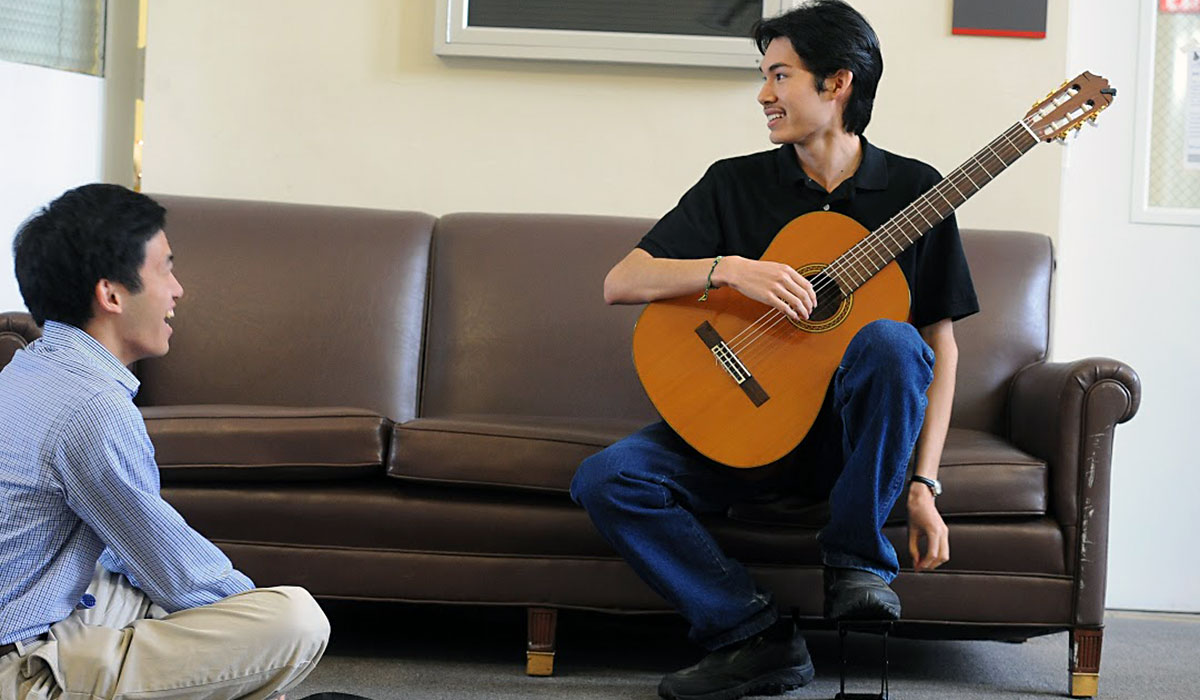

Freshman Peter Varga shared one of his many musical talents with the Catholic University community as he played centuries-old music on the guitar at Medieval Day earlier this spring. Varga, a psychology honors student and member of the Medieval Society who helped plan the day, has always been fascinated by the Middle Ages.
“The period is the origin of the Gregorian Chant, which has informed the Western canon of music. And the Medieval Society helps dispel the myth that this period in history was only ‘dark,’ when in fact it was a time of innovation and discovery.”
"Psychology has always been about more than the scientific study of behavior and mental processes for me; it’s the blending of empirical science with my faith."
Jennifer Paxton, assistant director of the University Honors Program and faculty advisor for the Medieval Society, notes that "Peter's commitment to integrating his studies with his musical pursuits and his faith shines forth in all that he does. He taught himself medieval repertoire to perform on Medieval Day, and he wrote and delivered a beautiful prayer for an honors presentation that drew on his deep knowledge of the rich theological traditions of the Church. We are so fortunate to have him among us."
Varga wants to continue with organ performance and composition when he is back from the Eternal City, where he will study in the fall at the Rome Center of The Catholic University of America and Australian Catholic University.
Catholic University topped the list when Varga sought a school that would support and encourage his lifelong interest in liturgy, theology, and music while also enabling him to pursue his academic interest in psychology.
“Psychology has always been about more than the scientific study of behavior and mental processes for me; it’s the blending of empirical science with my faith,” says Varga. “I want to use my Catholic foundation to inform my future work in psychology to better understand the people I work and interact with as individuals made in the likeness of God.”